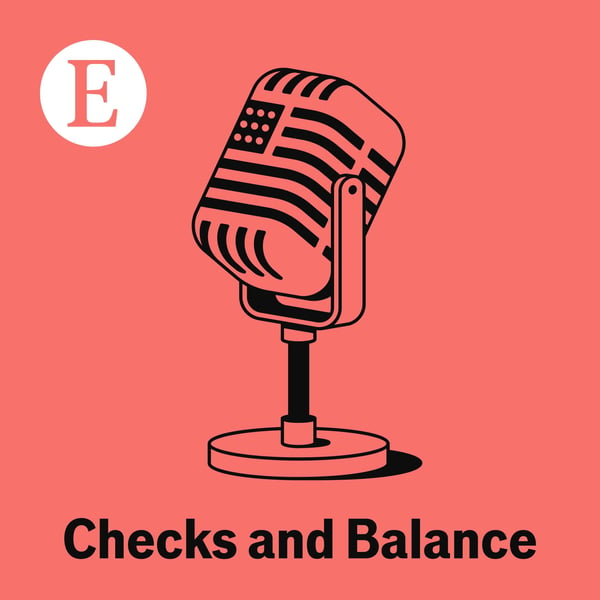Checks and balance: Suburban brawl
Checks and Balance from The Economist
The Economist
4.6 • 1.7K Ratings
🗓️ 18 September 2020
⏱️ 33 minutes
🧾️ Download transcript
Summary
Donald Trump hopes fear of unrest and rising crime will appeal to the “suburban housewives” he tweets about. It’s a strategy borrowed from Richard Nixon, who first harnessed the political power of suburban voters to win the White House. But two years ago the Democrats took control of Congress by winning suburbia. Who will win the suburban vote this time?
We speak to election forecaster Rachel Bitecofer, Candace Valenzuela, who is running for Congress in the Texas suburbs, and look back to the battles over segregation that shaped the politics of suburbia.
John Prideaux, The Economist's US editor, hosts with New York bureau chief Charlotte Howard, and Jon Fasman, Washington correspondent.
For access to The Economist’s print, digital and audio editions subscribe: economist.com/2020electionpod
Hosted on Acast. See acast.com/privacy for more information.
Transcript
Click on a timestamp to play from that location
| 0:00.0 | In September 1989, 1989, as the Cold War thought, Boris Yeltsin paid a visit to Houston. |
| 0:08.1 | But it wasn't the gizmos at NASA's mission control that impressed him most. |
| 0:12.9 | The Houston Chronicle photographed the Russian President and his entourage at a stop they made in the nearby |
| 0:18.2 | suburb of Clear Lake. |
| 0:21.0 | Yeltsin is in the frozen food aisle of Randall's supermarket looming over a chest of popsicles. |
| 0:27.0 | He's grinning and displaying his arms in wonder at the treasures laid out before him. |
| 0:32.0 | Even the Pollit Bureau doesn't have this choice, he told the paper. |
| 0:36.0 | Yeltsin later wrote that the array of treats on display at Randalls shattered his view of communism. |
| 0:43.0 | The Russian leader was smart to spot the link between suburban bounty |
| 0:47.0 | and the strength of American democracy. |
| 0:50.0 | The next election, the economist reported at the time, would be the first in US history when the majority of voters were suburbanites. |
| 0:58.0 | The road to the White House has been winding past the lawns and malls of suburbia ever since. With 45 days to go, this is |
| 1:07.0 | checks and balance. I'm John Prado, the Economist's US editor, and this is a podcast about the 2020 elections. |
| 1:18.0 | Each week we take one big theme shaping American politics and explore it in depth. Today, who will win the suburban |
| 1:29.0 | vote? Suburbia will pick the president once more this election. |
| 1:36.0 | Donald Trump, hopes fear of unrest and rising crime, will appeal to the suburban housewives he tweets about. |
| 1:42.0 | It's a strategy borrowed from Richard Nixon. to the suburban housewives he tweets about. |
| 1:42.8 | It's a strategy borrowed from Richard Nixon |
| 1:44.9 | who first harnessed the political power of suburban voters |
| 1:48.2 | to win the White House. |
| 1:49.7 | But two years ago, it was the Democrats who took control of Congress thanks to suburban voters. |
| 1:55.4 | How did the suburbs become so decisive? |
... |
Please login to see the full transcript.
Disclaimer: The podcast and artwork embedded on this page are from The Economist, and are the property of its owner and not affiliated with or endorsed by Tapesearch.
Generated transcripts are the property of The Economist and are distributed freely under the Fair Use doctrine. Transcripts generated by Tapesearch are not guaranteed to be accurate.
Copyright © Tapesearch 2025.

